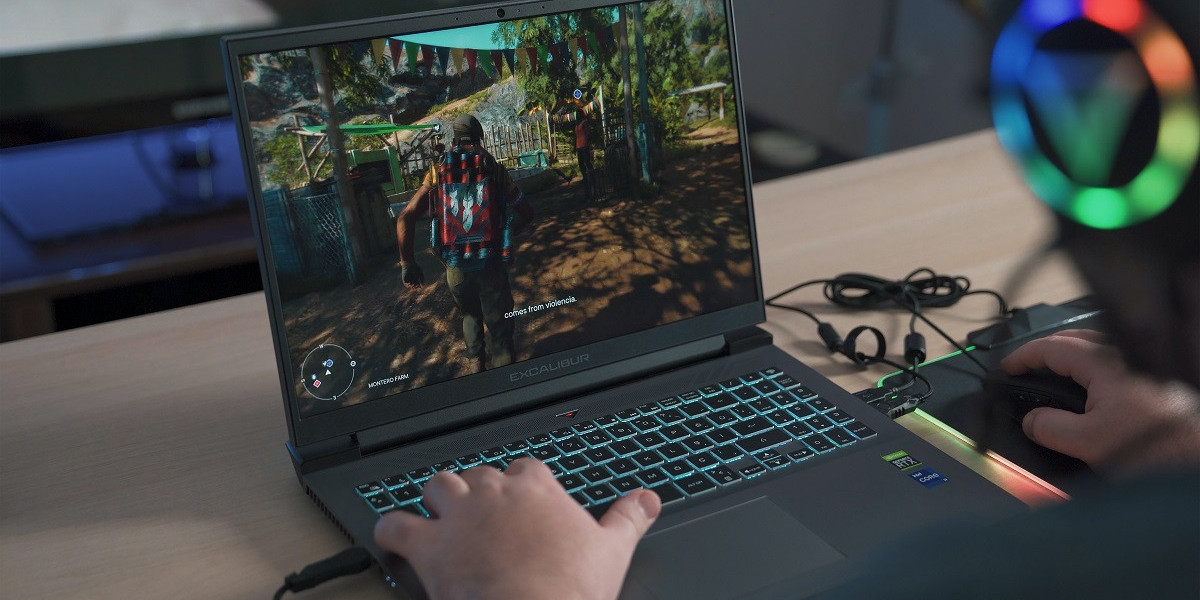Choosing the best gaming laptop can feel like navigating a maze. With countless options and technical jargon, it's easy to get overwhelmed. Fear not; we're here to help you make an informed decision. This guide will walk you through the key factors to consider when choosing the perfect gaming companion.
1. Define Your Gaming Needs
First, consider what type of games you play. Are you into graphically intensive AAA titles like Cyberpunk 2077 or do you prefer indie games? Your gaming preferences will dictate the level of performance you need. High-end games demand powerful hardware, while less demanding games can run on modest systems.
2. Budget
Set a realistic budget. Gaming laptops range from affordable to exorbitantly priced. Determine how much you’re willing to spend. Recall that you typically get what you pay for. However, great deals exist if you know where to look. Balancing performance and cost is key.
3. Key Specifications to Consider
a. GPU (Graphics Processing Unit)
The GPU is crucial for gaming performance. NVIDIA and AMD dominate the market with their GPUs. For high-end gaming, look for NVIDIA’s RTX series or AMD’s Radeon RX series. If you’re on a budget, consider the GTX series. Ensure the GPU can handle the games you want to play at the desired settings.
b. CPU (Central Processing Unit)
The CPU impacts your laptop’s overall performance. Intel and AMD offer competitive options. For gaming, aim for at least an Intel i5 or AMD Ryzen 5. High-end gamers should consider an Intel i7/i9 or AMD Ryzen 7/9. Higher clock speeds and more cores enhance performance.
c. RAM (Random Access Memory)
Adequate RAM ensures smooth gameplay and multitasking. A minimum of 8GB RAM is recommended, but 16GB is ideal for most gamers. Some high-end laptops offer 32GB or more, but that’s overkill for most users.
d. Storage
Speed and capacity matter. SSDs (Solid State Drives) offer faster load times and better performance than HDDs (Hard Disk Drives). A combination of both is ideal – an SSD for the operating system and games, and an HDD for additional storage. Aim for at least 256GB SSD and 1TB HDD.
4. Display Quality
Your window into the gaming world is the display. Several factors determine a good display:
a. Resolution
Higher resolution offers better clarity. The standard is 1080p (Full HD), but 1440p (QHD) and 2160p (4K) provide sharper images. Higher resolution requires more powerful hardware.
b. Refresh Rate
A higher refresh rate results in smoother gameplay. Aim for at least 60Hz, but 120Hz or 144Hz are preferred for competitive gaming. Some laptops offer up to 300Hz, which is ideal for esports enthusiasts.
c. Panel Type
TN panels are inferior to IPS panels in terms of colour accuracy and viewing angles. For gaming, IPS is preferred, but TN panels can offer faster response times.
d. Screen Size
Choose a size that balances portability and immersion. Common sizes are 15.6 inches and 17.3 inches. Smaller screens (13-14 inches) are more portable, while larger screens (17-18 inches) offer a better visual experience.
5. Build Quality and Design
Durability and design matter, especially if you travel often. Look for a robust build with quality materials. Consider the laptop’s weight and thickness – gaming laptop tend to be bulkier, but some models offer a slim design without compromising performance.
6. Keyboard and Touchpad
A good keyboard enhances your gaming experience. Look for the following features:
a. Key Travel and Actuation
Deep key travel and tactile feedback improve comfort and responsiveness. Mechanical keyboards offer the best experience, but good membrane keyboards can suffice.
b. Backlighting
RGB backlighting is common in gaming laptops. It’s not just for aesthetics; it can improve visibility in low light. Customizable lighting profiles add a personal touch.
c. N-Key Rollover and Anti-Ghosting
These features ensure that multiple key presses register correctly, crucial for fast-paced games.
7. Cooling System
Gaming generates heat, and effective cooling is essential. Look for laptops with efficient cooling systems – multiple fans and heat pipes. Poor cooling can lead to throttling, reducing performance and potentially damaging components.
8. Battery Life
Gaming laptops aren’t known for long battery life, but some manage to strike a balance. Don’t expect more than a few hours of intensive gaming on battery power. However, for everyday use, aim for a laptop that offers at least 6-8 hours of battery life.
9. Connectivity
Ensure your laptop has adequate ports for peripherals and accessories:
a. USB Ports
Multiple USB 3.0 ports are essential. USB-C ports offer versatility, including charging and data transfer.
b. HDMI or DisplayPort
For connecting to external monitors or TVs, an HDMI or DisplayPort is necessary.
c. Ethernet Port
For stable online gaming, a wired Ethernet connection is preferable over Wi-Fi.
d. Audio Jacks
A gaming experience that is immersive requires high-quality audio. Ensure there’s a dedicated headphone jack and consider laptops with high-quality audio outputs.
10. Brand and Warranty
Brand reputation matters. Established brands like ASUS, Acer, Dell, HP, MSI, and Razer are known for their gaming laptops. They offer reliable performance and good customer support. Check the warranty – at least one year is standard, but extended warranties are beneficial.
11. Reviews and Benchmarks
Research and read reviews. User reviews and professional benchmarks provide insight into real-world performance. Look for feedback on gaming performance, build quality, and reliability. Websites like Notebookcheck, Tom’s Hardware, and TechRadar offer detailed reviews and comparisons.
Conclusion
Choosing the best gaming laptop involves balancing several factors. Define your gaming needs, set a budget, and focus on key specifications like GPU, CPU, RAM, and storage. Consider display quality, build, and keyboard features. Don’t overlook cooling, battery life, and connectivity options. To make an informed choice, investigate brands and read reviews. With this guide, you're well-equipped to find a gaming laptop that meets your needs and enhances your gaming experience. Happy gaming!








